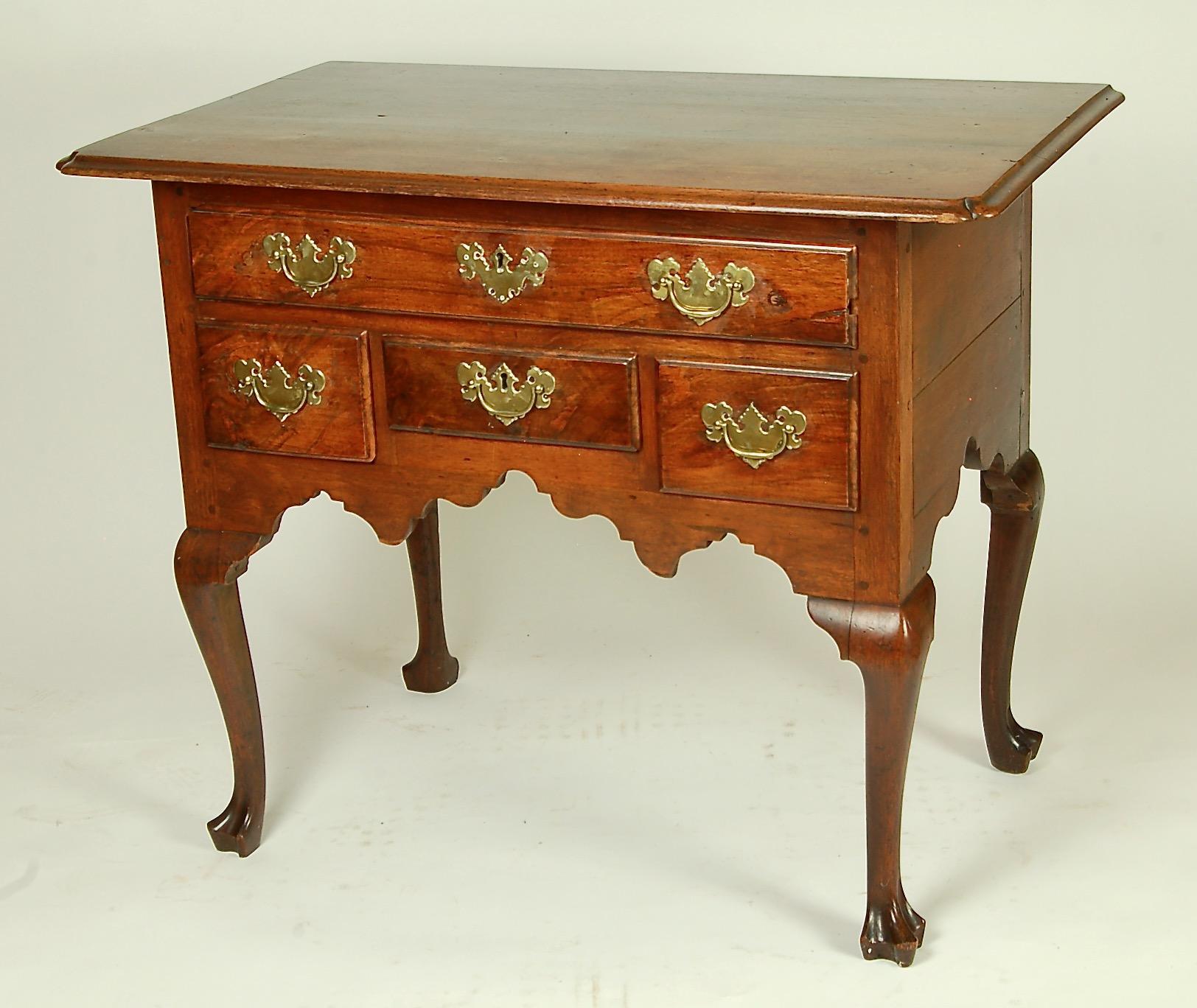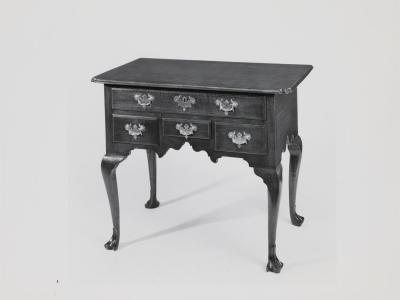Dressing table
1745-1775
Measurements
29-1/2 in x 36-3/8 in x 21-1/2 in
Materials
Walnut; hard pine (drawer sides, backboard) and white cedar (drawer bottoms)
Credit Line
Historic Odessa Foundation, gift of H. Rodney Sharp
Accession Number
1958.3282
Condition Notes
At least three sets of brasses have been installed on the drawerfronts. Boards to create interior compartments in the top and center drawers were added later.
Provenance
Ex coll. H. Rodney Sharp
Comments
The dressing table (also popularly called a lowboy) has cabriole legs ending in small trifid feet. The original top, made of three boards glued edge-toedge, has cusped front corners and overhangs the case—more so on the sides than in the front and only slightly in the rear, representing the usual placement. The drawer configuration is typical of early dressing tables, namely a full-width drawer above three smaller drawers, the middle of which is the shallowest. The scalloped skirt or apron combines half rounds and ogees. The center of the skirt rises highest. Similar scalloping occurs on the sides. This same pattern of scalloping occurs on a chest-on-frame at Historic Odessa, acc. no. 1971.618, although the two case pieces were not necessarily made in the same shop or place.A similar dressing table sold by antiques dealer Israel Sack, Inc, of New York City bears an inscription under the top, “Repaired by J. Janvier, April 20 1799.” Its present whereabouts is unknown. (Yale University Art Gallery, Israel Sack Furniture Archive, acc. no. 4283.)

